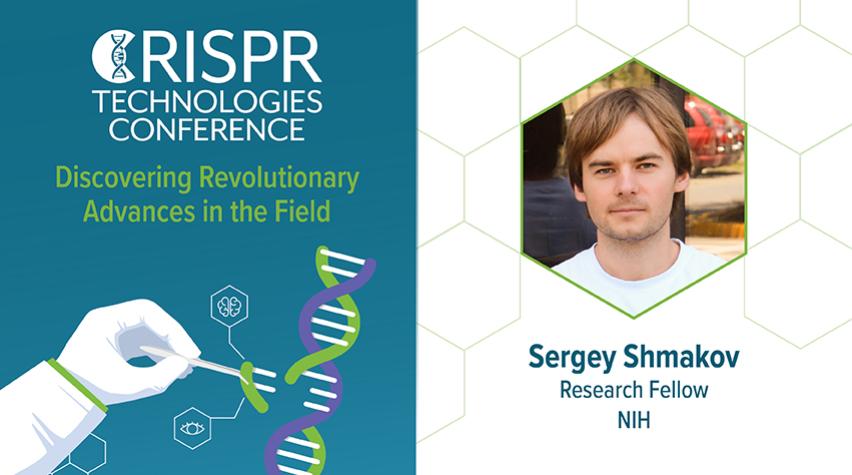
The 2023 International Conference on CRISPR Technologies will be held October 17–19, 2023 at the Revere Hotel Boston Common, Boston, MA. Organized by AIChE’s Society for Biological Engineering (SBE), the conference will focus on the latest advances in the genome editing field, bringing together key stakeholders with aligned interests across the spheres of academia and industry. Reserve your spot today.
We spoke with Sergey Shmakov, a research fellow at NIH, to discuss what he’ll be sharing at the conference, trends in the CRISPR field, and how CRISPR can advance some of the grand challenges facing engineering and society today.
What specifically will you be talking about at the conference?
My talk will be about the self-regulation of CRISPR-Cas systems with CRISPR-like RNAs (crRNAs). CrRNAs are encoded in mini-arrays that are located near cas genes. Mini-arrays contain spacers that target promoter regions with a partial match of 10–15 base pairs (bp), which is sufficient for binding but not cleavage. These elements are natural regulators that use CRISPR-Cas effector complexes as a machinery. They can be used for a variety of applications, such as self-regulation or target regulation. These elements can also be efficient tools to silence defense genes in phage therapy applications.
How do CRISPR technologies influence/overlap with other areas of bioengineering?
CRISPR-Cas effectors serve as a simple and reliable sensor of RNA or DNA in various forms. Their specificity and simplicity allow them to be combined with natural nuclease protein domains or other functional domains to streamline numerous biotechnological applications. Another major breakthrough is the application of CRISPR-Cas for personalized medicine, where its ability to recognize highly specific DNA or RNA sequences can precisely guide a treatment to the target.
What are some of the technologies trending in the CRISPR field?
Cas7-11 or CRASPASE provide novel approaches for conditional protease activities which opens a way for activating pathways related to protein modifications, such as activating cell signal reporters.
How do you envision CRISPR technologies advancing some of the grand challenges in engineering and society (medicine, health informatics, etc.)?
CRISPR-Cas genes are a multifunctional tool for biotechnology. They originated in the prokaryotic world and have not been optimized for eukaryotic genomes over millions of years of evolution. However, I believe that with the help of novel AI approaches, CRISPR-Cas genes can soon be turned into a safe and reliable tool for genome editing in humans, leaving safe and specific delivery as the only major challenge.
About SBE
Established in 2004, the Society for Biological Engineering is a technological community for engineers and applied scientists integrating biology with engineering. Members of SBE come from a broad spectrum of industries and disciplines and share in SBE’s mission of realizing the benefits of bioprocessing, biomedical, and biomolecular applications. Learn more about SBE.
Learn more about the 6th International Conference on CRISPR Technologies.


